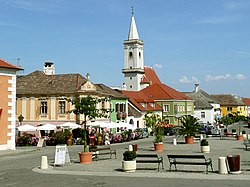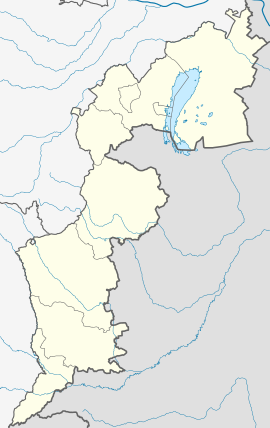Rust,_Austria
Rust (German pronunciation: [ʁʊst] ⓘ; Croatian: Rušta; Hungarian: Ruszt) is a city in the Austrian state of Burgenland, located on the western shore of Lake Neusiedl near the border with Hungary. With only about 1,900 inhabitants, it is the country's smallest statutory city, as it was endowed with the rights of a royal free city by the Hungarian crown in 1681. As a Statutarstadt, it also forms an administrative district (Bezirk) in its own right. The city is famous for its wines, especially for Beerenauslese, ice wine and - especially - Ruster Ausbruch.
This article needs additional citations for verification. (June 2016) |



